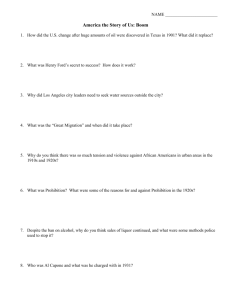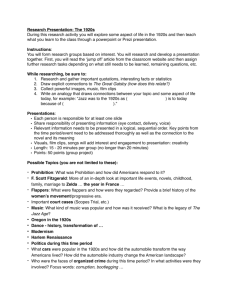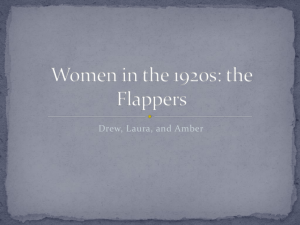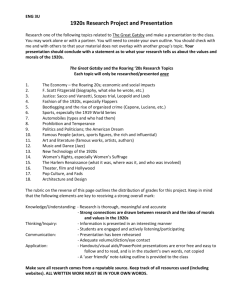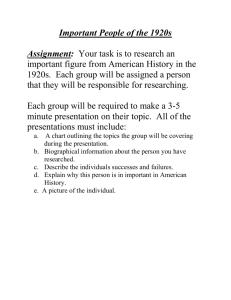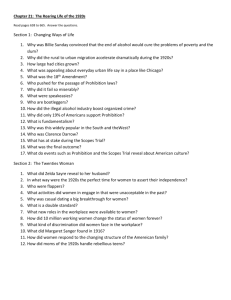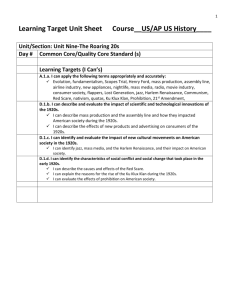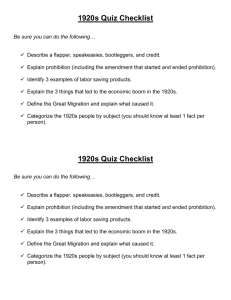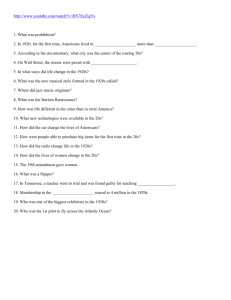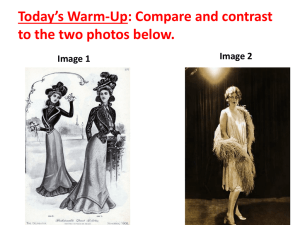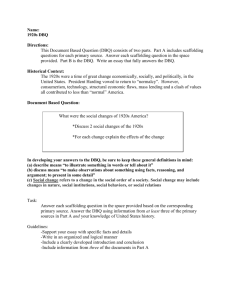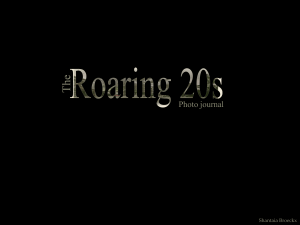File - Ms. Mazzini-Chin
advertisement
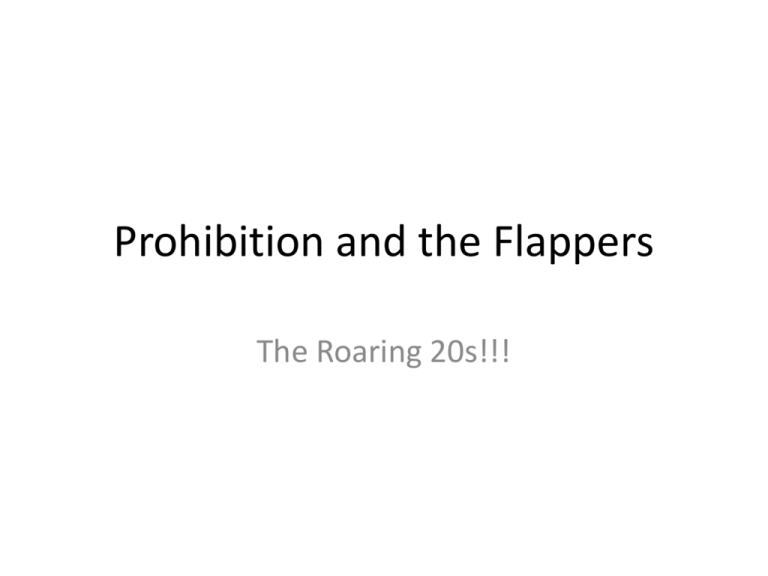
Prohibition and the Flappers The Roaring 20s!!! http://www.pbs.org/kenburns/prohibition/roots -of-prohibition/ It’s a Wonderful Life Charleston General Mood… • 1920s dominated by conservative Republican presidents • Americans experienced an unprecedented burst of consumer activity due to mass-production commodities available • Tensions prevailed between rural and urban America • Feelings of nativism and racism ran high • U.S. government persecuted radicals in the red scare. Aim: Should the 1920s be considered a cultural shift or a revolution? Vocab/Identifications Christian Women’s Temperance Union Prohibition fundamentalist roots KKK support for Prohibition 18th Amendment Volstead Act Charleston Speakeasies Racketeers Al Capone Sigmund Freud Essential Questions: (1) Who can we consider the corrupt ones, the law makers or the law breakers? Activity Walk around the room to the stations (there are 4 total…each half of the room has a set). Read the sheets with your group. Jot down notes. Go back to an empty area with your group and discuss what conclusions you can draw from what you read/heard/saw. Use your knowledge from this and the other 1920s lessons to come up with your answer to (1)Who can we consider the corrupt ones, the law makers or the law breakers? (2)Were the law breakers and flappers revolutionaries in their own right? Why or why not. (3)Are flappers a version on feminists? (4)Which wins – fundamentalism or modernism? USE EVIDENCE FOR YOUR RESPOSES!!! The Lingo Tin Lizzie (1915) – automobile. “Let’s go for a ride in my tin lizzie.” Sheik (1919) – ladies’ man (dreamboat, heartthrob) Know One’s Onions (1922) – to be thoroughly knowledgeable or competent in a subject area. “That Plumber really knows his onions.” Hotsy-totsy (1926) – pleasing, perfect, fine, sometimes used ironically… “Once I got bumped up to first-class, everything was hotsy-totsy.” Ankle (1926) – to walk. “She ankled over to the popsicle stand.” All-Wet (1923) – completely wrong, in error. “He’s all wet on those dot-com stocks.” The Bee’s Knees (1923) – extraordinary person or thing, unparalleled excellence. “This American History class is the bee’s knees.” The Berries (1917) – something or someone unusually attractive, pleasing, or excellent. “My new boyfriend is the berries. Introduce DBQ Directions: The following question requires you to construct a coherent essay that integrates your interpretation of the following Documents and your knowledge of the period referred to in the question. High scores will be earned only by essays that both cite key pieces of evidence from the documents and draw on outside knowledge of the period. “The economic prosperity of the 1920s failed to prevent the social, cultural, and political divisions of the United States.” Assess the validity of this statement using the documents and your knowledge of the period of the 1920s. DBQ… 20s Presidents http://uccpbank.k12hsn.org/courses/APUSHisto ryII/course%20files/multimedia/lesson59/lesson p_uccp_ap.html
